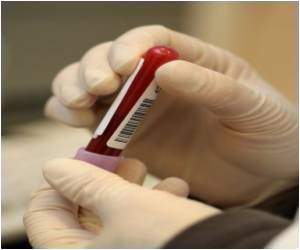A simple, non-invasive blood test can detect Alzheimer’s disease in its early stages long before its devastation is identified, claim researchers in Canada and the US.

Now, research at Georgetown University in Washington and University of California, San Diego that has been financed by the U.S. National Institutes of Health, and the manufacturing company, Samaritan Pharmaceuticals, has helped in developing the new blood test based on a biochemical process which can prove the existence of the disorder in a patient.
The test subjects a blood sample to oxidation, a chemical reaction, which should generate high levels of dehydroepiandrosterone, or DHEA, a brain hormone if the blood is healthy. But blood from people with Alzheimer’s would produce little DHEA.
The lead researcher, Vassilios Papadopoulos, of McGill University Health Centre in Montreal states, “There is a clear correlation between the lack of ability to produce DHEA through oxidation in the blood and the degree of cognitive impairment found in Alzheimer’s disease.”
Although the usefulness of the test is under question since Alzheimer’s still lacks an effective treatment strategy, researchers feel that it could be of help in slowing down disease progression and, in clinical trials of potential drug treatments, as the DHEA levels could establish whether the drug is successful or not.
More research is needed to prove its efficacy as a screening tool. Efforts of other research teams to produce reliable and non-invasive diagnostic tests for Alzheimer’s disease are under way and in a couple of years’ time, Dr. Papadopoulos hopes that there would be several blood-based tests build a more complete picture of the patient’s condition.
Advertisement
Advertisement












